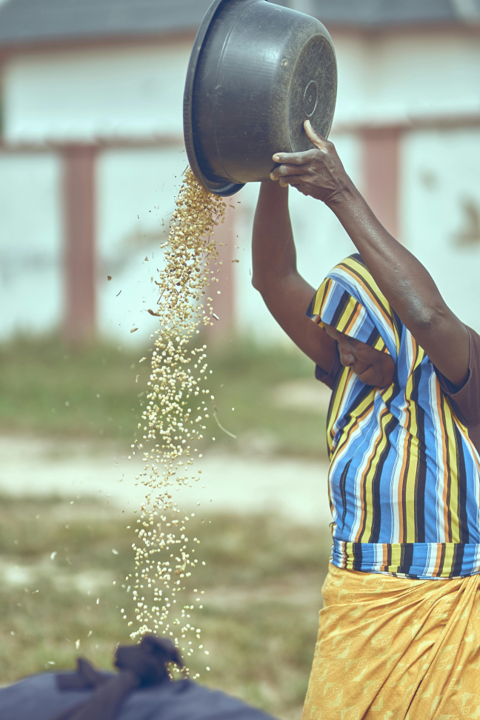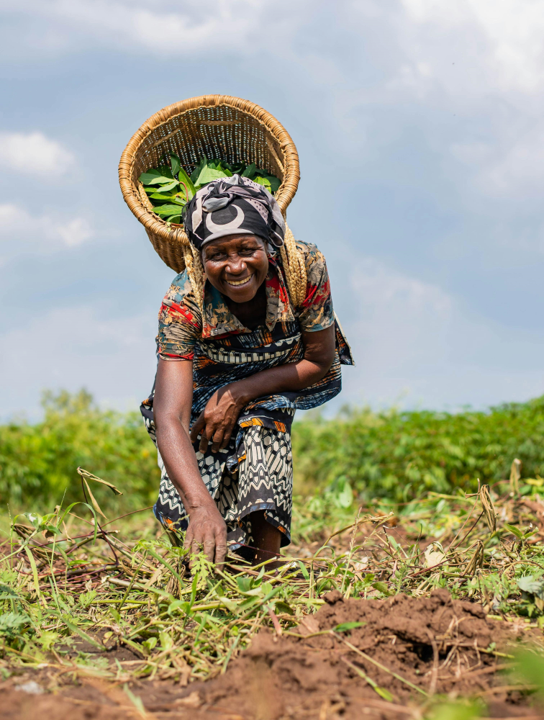The International Day of Rural Women, celebrated annually on October 15, shines a spotlight on the invaluable contributions rural women make to agriculture, food security, and sustainable development globally. In 2024, the theme “Rural Women Cultivating Good Food for All” aptly underscores their vital role in cultivating food systems that nourish both people and the planet.
Rural women constitute nearly 43% of the global agricultural workforce, a figure that reflects their significant input into ensuring food security in their communities and beyond. In developing countries, women contribute as much as 60-80% of food production, according to the Food and Agriculture Organization (FAO). Yet, despite their monumental contributions, they remain among the most vulnerable and underserved groups, lacking access to resources like land, credit, and technology.
Marking this day is essential not only to celebrate the work of rural women but to raise awareness about the challenges they face and encourage support for their efforts. Across the globe, rural women are not just feeding their families—they are cultivating resilience, fostering sustainable farming practices, and safeguarding biodiversity.
Rural Women’s Impact on Global Agriculture
From the fields of sub-Saharan Africa to the highlands of Asia, rural women are central to the production of food. Yet, they are disproportionately affected by poverty, climate change, and systemic barriers, such as restricted land ownership rights and limited access to education. According to UN Women, if women had the same access to productive resources as men, they could increase yields on their farms by 20-30%, which would have a profound impact on reducing global hunger.
Supporting Rural Women: A Global Perspective
Supporting rural women’s initiatives is essential in tackling some of the world’s most pressing challenges, including hunger, malnutrition, and climate change. Here are ten organizations from around the world that are working to empower rural women:
Rural Women Development Network (South Africa): This nonprofit empowers women farmers in South Africa by providing them with access to markets, training, and financial resources. Their programs focus on organic farming and sustainable agricultural practices.
Tafoukt Women’s Cooperative (Morocco): In North Africa, this cooperative helps rural women produce argan oil sustainably while providing them with fair wages and educational opportunities, improving both livelihoods and community resilience.
Women in Agriculture Association (Ukraine): This Eastern European organization supports rural women in Ukraine by promoting gender equality in agriculture and offering training on climate-smart agriculture, helping women adapt to and mitigate the impacts of climate change.
FarmHer (USA): An American initiative, FarmHer shines a spotlight on the contributions of women in agriculture across rural America. Through their media platform and events, they inspire, educate, and empower women in the farming industry.
Semilla (Peru): This nonprofit provides rural women with access to seeds and agricultural training to promote sustainable food cultivation practices. Their work ensures that women farmers can grow nutritious food for their families while contributing to biodiversity.
Self Employed Women’s Association (India): SEWA works with women in rural India, providing them with agricultural training, access to markets, and support for small-scale farming initiatives. The organization helps women increase their incomes and food security.
Baalbeck Farmers’ Cooperative (Lebanon): This cooperative supports rural women in Lebanon by giving them access to agricultural training and helping them market their products internationally, ensuring that they can achieve economic independence.
Jamaica Agricultural Women’s Association: This organization supports rural women in Jamaica by providing training in sustainable farming techniques and improving their access to agricultural markets, which strengthens food security in the region.
Pacific Island Farmers Organization Network (Fiji): This nonprofit works across Pacific Island nations to support women farmers through training programs, access to credit, and creating regional agricultural networks.

Donor Organizations Investing in Rural Women’s Futures
Beyond grassroots efforts, several donor organizations are making significant investments to empower rural women, focusing on sustainable agriculture, education, and economic independence. These institutions provide essential funding and resources, ensuring that rural women can access the tools they need to thrive.
- International Fund for Agricultural Development (IFAD): A global financial institution dedicated to eradicating poverty and hunger in rural areas of developing countries, IFAD funds projects that empower rural women. Their focus includes promoting sustainable agricultural practices, improving food security, and ensuring equal access to land and financial services for women farmers.
- Wallace Global Fund (USA): Less well-known but deeply impactful, the Wallace Global Fund
supports innovative social movements that promote systemic change, including initiatives aimed at empowering rural women. The Fund emphasizes gender equality, sustainable agriculture, and climate justice, often backing projects that enable rural women to adopt eco-friendly farming practices and lead community-based initiatives.
First Ladies are also doing their part to support rural women’s empowerment through various initiatives across the globe.
A prominent example is Auxillia Mnangagwa, the First Lady of Zimbabwe. Through her philanthropic work with the Angel of Hope Foundation, she focuses on improving the lives of rural women by promoting sustainable agriculture, access to healthcare, and education. Mnangagwa’s initiatives provide resources for rural women to engage in small-scale farming and equip them with entrepreneurial skills, enhancing their economic independence and strengthening food security in their communities.
In South America, Leticia Ocampos, the First Lady of Paraguay, actively advocates for early childhood development and women’s empowerment. She leads various initiatives that ensure vulnerable children receive essential education and care, significantly impacting rural families. Ocampos is also the President of ALMA, the Alliance of Spouses of Heads of State and Representatives of Latin America, where she collaborates with other First Ladies to tackle critical issues affecting women and children across the region.
In her role, she is spearheading urban revitalization projects in Asunción, focusing on environmental preservation and enhancing public spaces, which indirectly benefit rural communities by fostering local economies. Additionally, Ocampos serves as an ambassador for the Special Olympics, promoting inclusion and participation for individuals with disabilities, further underscoring her commitment to social equity
Rural Women and Sustainable Development Goals
In 2022, rural women represented more than 1 billion people globally, with a vast majority engaged in agricultural activities. Despite their substantial role in food systems, women own less than 15% of land worldwide. Aligning with the Sustainable Development Goals (SDGs), particularly SDG 2: Zero Hunger and SDG 5: Gender Equality, the International Day of Rural Women calls for global action to eliminate hunger by promoting gender equality and empowering rural women.

A Call to Action
The International Day of Rural Women is an opportunity for governments, NGOs, businesses, and individuals to step up in supporting rural women. Donating to or partnering with organizations that champion women’s rights, advocating for gender-equitable policies in agriculture, and supporting women-led food initiatives are powerful ways to make a difference.
Rural women play a critical role in sustaining the world’s food systems, yet they remain one of the most marginalized groups. By amplifying their voices, investing in their futures, and ensuring they have equal access to resources, we can cultivate a world where they not only feed us all but thrive in doing so.